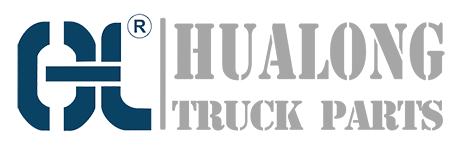The Versatility and Reliability of oem hydraulic cylinders
Hydraulic cylinders are fundamental components of many industrial applications, operating in various industries such as manufacturing, construction, and agriculture. Among the different types available, OEM hydraulic cylinders stand out for their superior quality and reliability. This article delves into the world of OEM hydraulic cylinders, exploring their function, benefits, and applications across industries.
1. Understanding the Basics of OEM Hydraulic Cylinders
Before delving into the details, it is essential to understand what OEM hydraulic cylinders are. OEM stands for Original Equipment Manufacturer, which means these cylinders are manufactured by the same company that produces the equipment in which they are used. OEM hydraulic cylinders are specifically designed to meet the requirements and specifications of the original equipment, ensuring optimal performance and compatibility.
2. The Functionality of OEM Hydraulic Cylinders
OEM hydraulic cylinders are primarily responsible for converting fluid power into mechanical force and motion. They work on the principle of Pascal's Law, which states that when pressure is applied to a fluid in an enclosed system, it transmits that pressure equally in all directions. This force is harnessed by the hydraulic cylinder to produce linear motion, allowing it to perform various tasks, such as lifting heavy loads, pushing, pulling, and bending.
3. The Advantages of OEM Hydraulic Cylinders
OEM hydraulic cylinders offer several advantages over generic or aftermarket cylinders. Firstly, OEM cylinders are manufactured with precise specifications and high-quality materials, ensuring their durability and reliability. They are designed to seamlessly integrate with the original equipment, reducing the risk of compatibility issues. Additionally, OEM cylinders often come with warranty protection, providing peace of mind to equipment owners.
4. Customization Options for OEM Hydraulic Cylinders
One of the significant benefits of OEM hydraulic cylinders is the ability to customize them according to specific requirements. OEM manufacturers work closely with equipment designers and manufacturers to ensure that the hydraulic cylinders perfectly fit the intended application. Customization options include bore size, stroke length, mounting style, and even the type of seals used, allowing for optimal performance and efficiency.
5. Applications of OEM Hydraulic Cylinders
OEM hydraulic cylinders find extensive use in various industries and applications. In the manufacturing sector, they are utilized in machinery such as injection molding machines, metal stamping presses, and robotic systems. In the construction industry, OEM cylinders are essential components of excavators, loaders, and cranes. Additionally, they play a crucial role in agricultural machinery, such as tractors and harvesters.
6. Factors to Consider when Choosing OEM Hydraulic Cylinders
When selecting OEM hydraulic cylinders, several factors need to be taken into account. Firstly, the operating pressure and temperature range should align with the intended application. It is also important to consider the load capacity, stroke length, and speed requirements. Additionally, factors such as corrosion resistance, seal type, and maintenance requirements should be evaluated to ensure optimal performance and longevity.
7. Maintenance and Troubleshooting of OEM Hydraulic Cylinders
Proper maintenance is crucial to ensure the longevity and optimal performance of OEM hydraulic cylinders. Regular inspections, including checking for leaks, damaged seals, and abnormal wear, should be conducted. Lubrication of moving parts and adherence to the manufacturer's recommended maintenance schedule are essential. In the event of issues, troubleshooting should be performed systematically, focusing on potential causes such as contamination, inadequate lubrication, or seal failure.
8. Safety Considerations when Working with OEM Hydraulic Cylinders
Working with hydraulic cylinders involves potential hazards, and safety should always be a top priority. Adequate training on the proper operation and maintenance of hydraulic systems is essential. It is crucial to follow safety guidelines provided by the manufacturer and use personal protective equipment when necessary. Regular inspections of hydraulic systems and adherence to safety standards and regulations are vital to prevent accidents and ensure a safe working environment.
9. The Future of OEM Hydraulic Cylinders
As technology continues to advance, OEM hydraulic cylinders are also evolving to meet the changing demands of industries. With the advent of automation and the Internet of Things (IoT), hydraulic systems are becoming more intelligent, with features such as remote monitoring and predictive maintenance. OEM manufacturers are incorporating advanced materials and design techniques to enhance the performance, efficiency, and sustainability of hydraulic cylinders.
10. Conclusion
OEM hydraulic cylinders play a vital role in various industries, providing reliable and efficient mechanical force and motion. Their compatibility, durability, and customization options make them the preferred choice for equipment manufacturers and users alike. By understanding the functionality, benefits, applications, and maintenance requirements of OEM hydraulic cylinders, industries can harness their full potential and optimize their operations.

